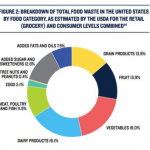Can Eating More Kale, Eggs, And Carrots Make You Smarter And Happier?
What you heard endlessly growing up was right: You really should eat your vegetables–but perhaps for more reasons than your nagging parents knew. Kale, carrots, and spinach are packed with a naturally occurring substance that researchers are beginning to link with cognitive performance and even mental health. Here’s the latest science behind the brain-boosting compound that could be as easy to harness as eating more salad.
Your Plastic Brain
Lutein is a carotenoid–basically, a fancy term for a natural pigment–that’s known for giving fruits and vegetables their red and yellow hues. It’s also found in leafy greens and it’s what gives pastured egg yolks their rich orange appearance. In the human body, we’ve long known that lutein is concentrated in the macula, an area in the retina of the eye, where it protects against potentially damaging wavelengths of light. But only fairly recently have scientists begun to understand how a lutein-rich diet can potentially impact the brain as well.
Researchers discovered in the mid-’90s that the brain retains its “plasticity”–or ability to change and adapt, both chemically and structurally–until death, a finding that put an end to the days of “neurological nihilism,” as the neuroscientist Norman Doidge memorably put it. This opened up the possibility that we may be able to harness our diets and environments for cognitive benefit.
This is good news because today brain fog, anxiety, and depression are common occurrences, to say nothing of the millions of people who suffer from brain injury, dementia, or are tagged with the ever-more-frequent diagnosis of ADHD. According to recent estimates, one in seven young people complain of memory problems, and one in six adults is currently taking a psychiatric drug. But with academic institutions hot on the trail of the connections between food and brain function, there is now growing evidence that simple diet and lifestyle changes can add up to big gains.
Can Spinach Make You Smarter, Not Just Stronger?
One such example comes from the University of Illinois Urbana-Champaign’s Center for Nutrition, Learning, and Memory, where in 2016 researchers linked the consumption of foods rich in lutein to greater “crystalized intelligence,” which is the ability to use the skills and knowledge one has acquired over a lifetime, a capacity that otherwise tends to deteriorate with age.
Since our bodies don’t naturally produce carotenoids, our brains’ lutein supply comes directly from the lutein we consume in foods. Lutein is the most concentrated carotenoid in the brain, and a person’s lutein levels have been linked to their overall cognitive performance over a lifetime (which includes but isn’t limited to crystalized intelligence). All this begs the question: can ingesting more lutein improve the way your brain works?
A randomized controlled trial at the University of Georgia in 2015 found that when healthy college-age adults regularly took lutein supplements (along with zeaxanthin, a related carotenoid) as part of their ordinary diets for four months, their average visual-processing speed jumped 20%. Visual processing speed tends to correlate with better sports performance, reading speed, and executive function (i.e. your ability to get stuff done), while reduced processing speed is a key early feature of cognitive decline.
The researchers were stunned by the positive effect. “[This] is significant since young, healthy subjects are typically considered to be at peak efficiency and might be expected to be most resistant to change,” they wrote. “It can be generally remarked that improving diet is not simply to prevent acquired or deficiency disease, but rather to optimize function throughout life.” Although perhaps this conclusion isn’t so surprising after all: Lutein is most abundant in dark leafy greens like kale and spinach, the very same foods that are already associated with reduced cognitive aging.
The Happiness Factor
While diet may play a role in helping our brains work faster, can the foods we eat make us happier, too? There is already evidence that poor diet is related to increased risk of depression, but most of the available findings are correlations, leaving causality a big question mark; when we’re depressed, after all, we tend to reach for lower-quality comfort foods.
But in a study published in 2017, Australian researcher Felice Jacka sought to investigate whether improving one’s diet would improve mental health. After three months, her group of 31 patients assigned to consume diets rich in fresh vegetables, fish, extra-virgin olive oil, and higher-quality meats saw their scores on a major depression scale improve on average by about 11 points. In fact, roughly a third of them had scores so low that they no longer met the clinical criteria for depression at all. Meanwhile, the 25 people in the group that received social support but no dietary modification improved their scores by only about four points, and just two of them (or 8%) achieved remission.
Of course, Dr. Jacka’s study examined very small sample sizes, and researchers like her are first to admit that we’re at the tip of the iceberg in terms of understanding the role that food plays in mood and cognitive performance. And to be sure, everyone’s brain and body will process the same diet a little bit differently. Still, the next few years promise to bring more data to light on the interrelationships of our mental health, cognition, and diet.
In the meantime, eat your spinach.
Max Lugavere is a health and science journalist and the author of Genius Foods: Become Smarter, Happier, and More Productive While Protecting Your Brain for Life, available everywhere on March 20, 2018. He can be found on Twitter and Instagram.
(22)














